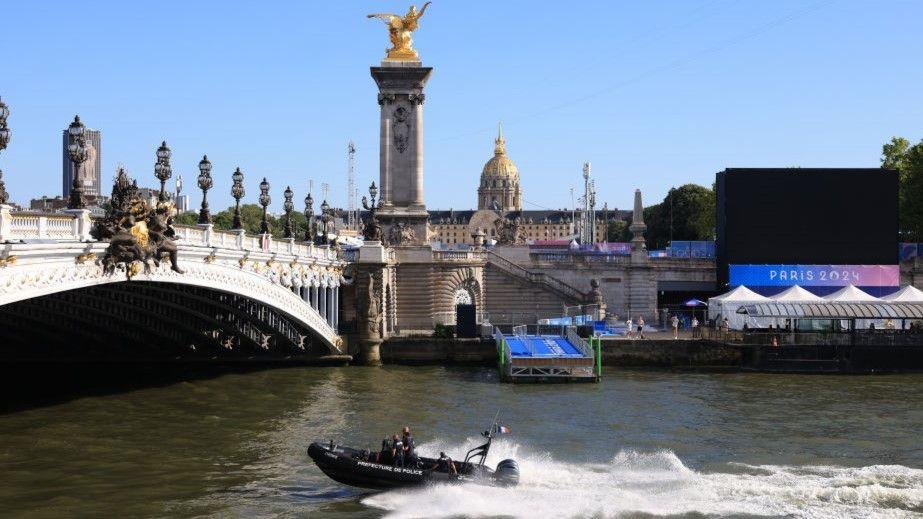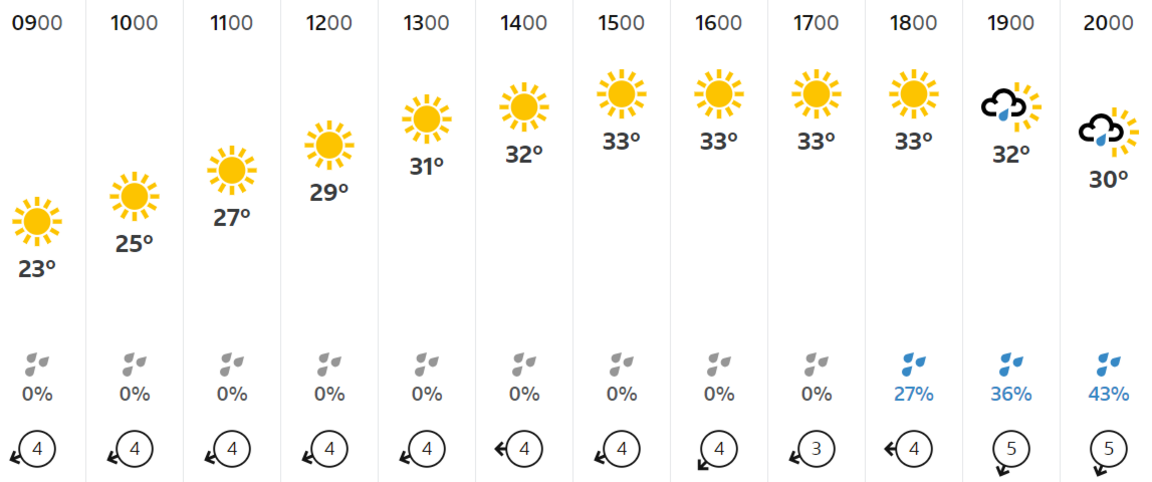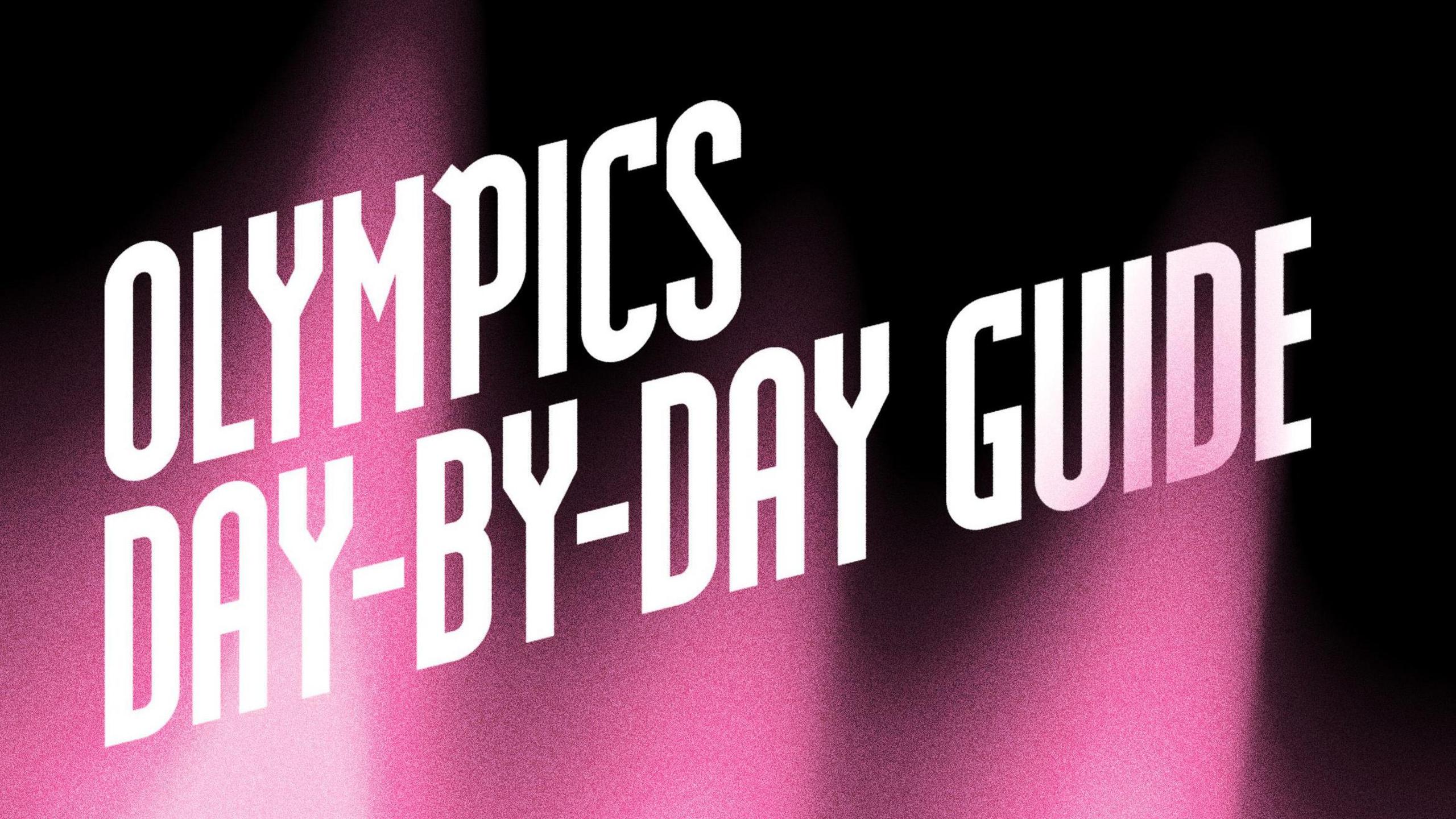Paris organisers confident triathlon will go ahead

There is set to be a men's, women's and mixed team triathlon competition in Paris
- Published
Paris 2024 organisers are confident the Olympic triathlon events will go ahead as scheduled from Tuesday despite concerns over pollution in the River Seine.
Two swimming training sessions were cancelled on Sunday and Monday because of the water quality.
There was heavy rain in Paris last week, which has affected the water quality, and temperatures are now expected to reach 34C on Tuesday, when the men's event is scheduled.
The men's event is due to take place at 07:00 BST (08:00 local time), with a final decision to be made at 03:00 BST (04:00 local time).
The women's event is set to take place on Wednesday and the mixed team competition on Monday, 5 August.
Lambis Konstantinidis, operations director for Paris 2024, said there were several back-up plans in place should the water quality not be good enough.
"One solution could be to have both men's and women's competitions on the same day," he told BBC Sport.
"Another possibility would be to use our contingency days that we have built into the programme.
"We also have the possibility to see what can be accommodated when we do the mixed relay - of course, we cannot do too many things on the same day.
"At some point, and it was widely discussed, we also considered the possibility of a duathlon, but this is for us the really, really extreme case when all other fails.
"We are not there yet, and we are confident that tomorrow [Tuesday] will be a good day."
What is the issue with the water?
Swimming in the River Seine was banned for a century because of the water quality.
Tests in June still showed levels of E.coli above the upper limits imposed by sports federations, but Paris mayor Anne Hidalgo recently swam in the river to try to prove it was safe.
Earlier this month, tests showed the river was clean enough for swimming but heavy rain in Paris on Friday and Saturday has led to the quality diminishing.
Thunderstorms are forecast for Tuesday evening after a day of hot weather.
Tests are carried out daily, with Monday's readings showing the water quality was below an acceptable standard.
"All the water that is coming from the mountains is now coming into the city. It is not a problem in the city itself - it is everything that's coming from before," Konstantinidis said.
"The trends we have are very positive for us for tomorrow.
"We have at least two systems of tracking the water quality to ensure that everybody is comfortable with the water quality, and if that's the case, we will give the green light."
Former triathlete and BBC commentator Annie Emmerson said athletes would want to familiarise themselves with the course before the events.
"The problem with the Seine and where it's held is there is a strong current," she said.
"When it comes to racing, if you're going against the current, you need to know where to position yourself best."
Emmerson backed the decision to cancel the training sessions based on the readings, adding: "To go into a familiarisation swim when the water quality isn't great and actually get sick before the event would be devastating for an athlete."
The open water swimming events on 7 and 8 August are also due to be held in the Seine, but they could be relocated to Vaires-sur-Marne on the Marne River, east of Paris, if necessary.
However, the triathlon swim cannot be moved because it is the first of the three legs - which is why the option of a duathlon, which would dropping the swimming leg, was discussed.
What about the heat?

The temperature is set to reach 33C in Paris on Tuesday
High temperatures and humidity are expected in Paris over the next few days, peaking on Tuesday.
"In the case of triathlon the heat has a positive effect because the sunlight and the increased temperature is beneficial in the sense that it kills bacteria," Konstantinidis said.
"It puts a temperature on the water and allows us to achieve the performance that we need.
"This was the case in the previous weeks - we had consistently good weather and consistently great trends in our measurements so we expect this to be the case this week."
The heat does pose problems for athletes and spectators.
Organisers have contingency plans for each sport and venue - some sports, for example, have a specific temperature threshold where play cannot continue if it goes above that.
Over 300 extra water fountains have been installed in Paris and there will be access to shaded areas at venues.
"It is important that people are prepared," Konstantinidis added.
"Right now, no competition is planned to be postponed for the time being."
Related topics
- Published10 August 2024

- Published26 July 2024
